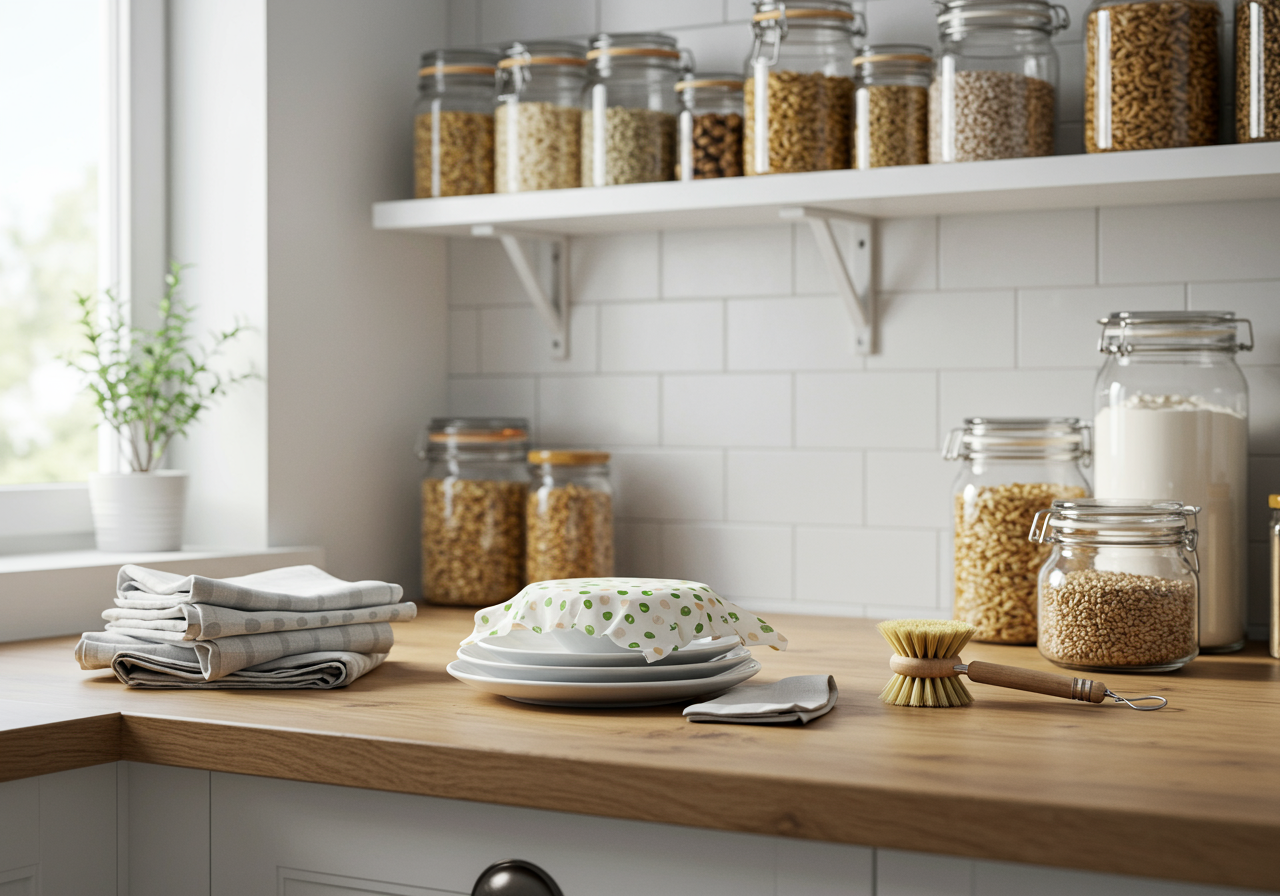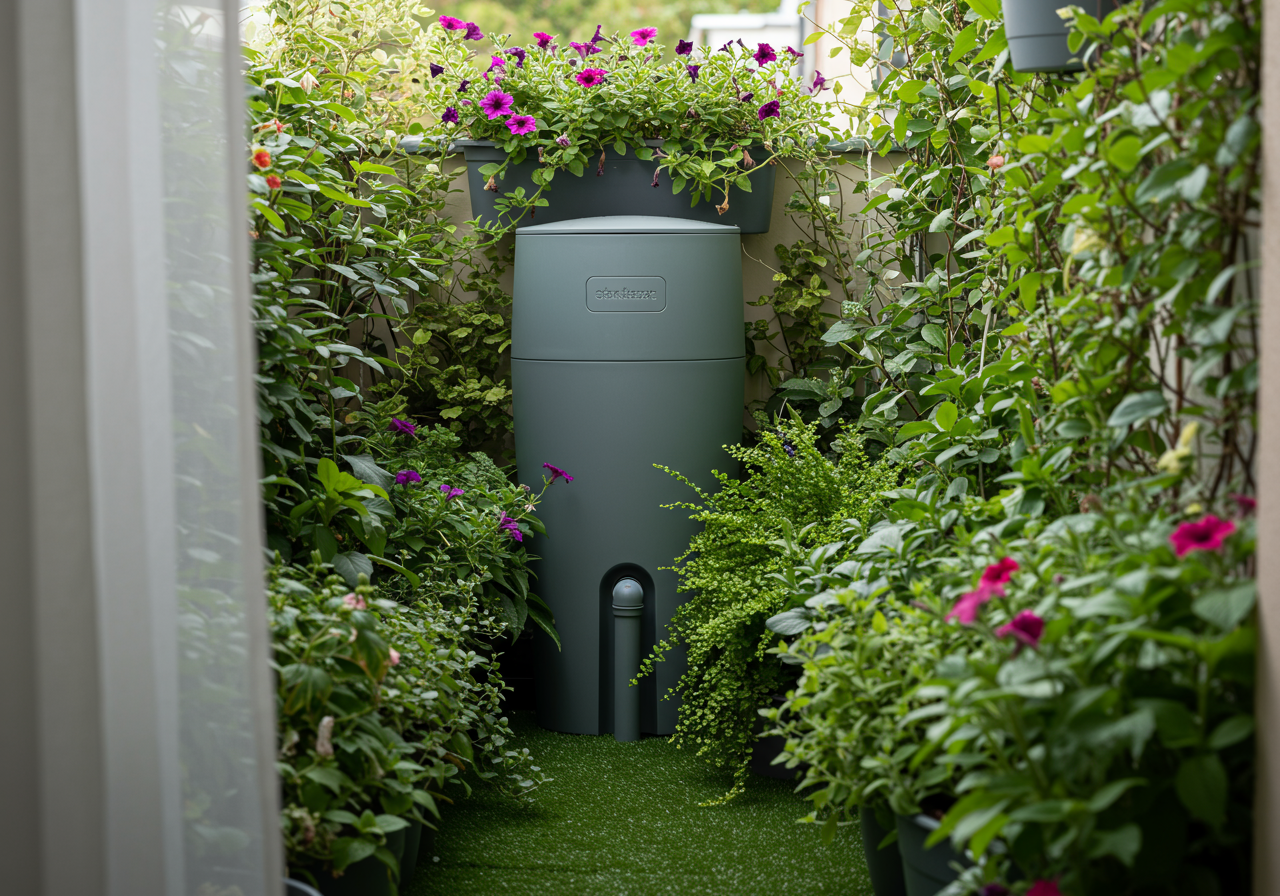Dreaming of a zero-waste kitchen but stuck in a rental? You’re not alone! Many renters feel limited by what they can change in their kitchens. But fear not, eco-conscious friends! A zero-waste lifestyle is absolutely achievable, even in a rented space. It’s all about adopting simple swaps, mindful habits, and embracing a gradual approach.
Ditching Disposables: Sustainable Swaps for Everyday Items
One of the biggest impacts you can make is eliminating single-use plastics and disposable items. Here are some easy swaps:
- Reusable Food Wraps: Replace cling film with beeswax wraps, silicone lids, or reusable containers. These are fantastic for storing leftovers and packing lunches.
- Cloth Napkins and Towels: Say goodbye to paper towels and napkins! Invest in a set of attractive cloth alternatives and simply toss them in the laundry.
- Reusable Shopping Bags and Produce Bags: Keep a stash of reusable bags by the door and in your car so you’re always prepared. Mesh produce bags are perfect for avoiding plastic packaging at the grocery store.
- Sustainable Dish Soap and Sponges: Look for dish soap refills or bars packaged in sustainable materials. Swap plastic sponges for compostable options like loofahs or wooden dish brushes.
Smart Shopping Strategies for a Zero-Waste Kitchen
Changing how you shop can significantly reduce waste. Here are some tips:
- Shop in Bulk: Bring your own containers to bulk food stores to stock up on staples like grains, nuts, and dried fruits. This cuts down on packaging significantly.
- Embrace Farmers Markets: Support local farmers and often find produce without plastic packaging. Plus, it’s a great way to connect with your community.
- Meal Planning: Planning your meals helps you buy only what you need, reducing food waste and unnecessary packaging.
- Choose Products with Minimal Packaging: Opt for items in glass, metal, or cardboard over plastic whenever possible.
Composting in a Rental: Making it Work
Composting might seem challenging in a rental, but there are options!
- Worm Composting (Vermicomposting): A worm bin is a compact and odorless way to compost indoors. It’s surprisingly easy and a great way to process food scraps.
- Share a Compost Bin: Check if your building or neighborhood has a shared composting system.
- Find a Local Compost Drop-Off: Many cities and towns offer compost drop-off locations.
Small Changes, Big Impact: Everyday Habits
Beyond swaps and shopping, small daily habits can greatly reduce your kitchen waste:
- Proper Food Storage: Store fruits and vegetables correctly to extend their lifespan and prevent spoilage.
- Embrace Leftovers: Get creative with leftover ingredients to minimize food waste. Turn them into new meals or freeze them for later.
- Repair, Don’t Replace: Instead of throwing away broken kitchen tools, try repairing them first.
- DIY Cleaning Solutions: Make your own cleaning solutions using simple ingredients like vinegar and baking soda to reduce reliance on packaged products.
Starting a zero-waste kitchen is a journey, not a race. Don’t feel pressured to do everything at once. Start small, focus on one swap or habit at a time, and celebrate your progress! By implementing these tips, you can significantly reduce your environmental footprint while renting, creating a more sustainable and fulfilling kitchen experience.




